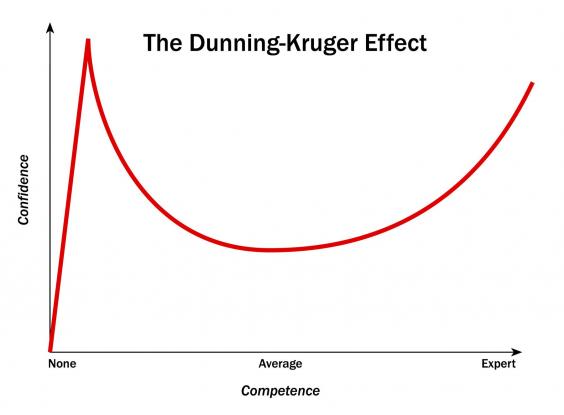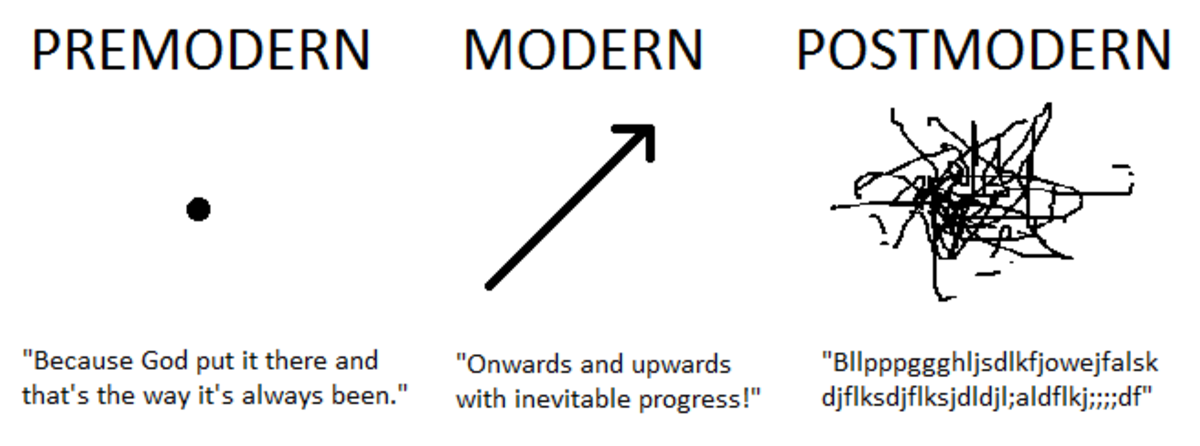“Politics is the art of looking for trouble, finding it whether it exists or not, diagnosing it incorrectly, and applying the wrong remedy.”
Ernest Benn
Picture for a moment your ideal society. You have finally elected a leader that isn’t a total corrupt moron. They actually have your best interests in mind, they’re fair, just, and competent. The country is running smoothly, there is no more violence, and it’s prospering like never before.
Sounds great right?
Except there is one problem: that’s already what each side of the political debate wants. We just can’t agree on how to get there.
I think one of the biggest problems is that we tend to avoid conversations about politics. Or rather, we tend to avoid constructive conversations about politics.
“In our age there is no such thing as ‘keeping out of politics.’ All issues are political issues…”
George Orwell
Everything we do in life has traces of our political ideologies, some more obvious than others. Still, we’re taught as a society to avoid discussing them. “No politics at the dinner table.” we’re told.
I think behaviours like that can create a negative feedback loop that has the opposite effect of their intention. The less we talk about politics, the more we become divided.
A poll from the Pew Research Center shows exactly how polarized we’ve become since 1994.
In this post i’ll be discussing some theories that might help us understand why we are experiencing this current political polarization.
I’ll talk about about how our own ignorance, the media, social cohesion, desire, and cultural postmodernism are all contributing toward a greater divide.
So grab some snacks and get comfortable.
1. Ignorance
One of the most appalling things I see in our society is how we willingly adhere to someone else’s set of moral principles without thinking for ourselves. We don’t understand the dangers of ideological group think. We are incapable of viewing the world through someone else’s eyes. We lack empathy, we’re delusional, stubborn, and entitled.
In a recent poll from the Pew Research Center, it was revealed that the majority of liberals and conservatives not only express frustration with the opposing views, but they each strongly believe the other side is close-minded, immoral, and dishonest. They even admit to feelings of fear of the other party.
“That millions of people share the same form of mental pathology does not make these people sane”
Erich Fromm
We’re seeing something like the Dunning-Kruger effect. It’s a cognitive bias in which people wrongly overestimate their own knowledge. Put simply, it’s the inability to recognize one’s own inability.
People who scored lowest on grammar, humour, and logic tests, dramatically over estimated how well they performed. Alternatively, the people who scored highest on the tests underestimated their ability.
Charles Darwin once said that: “Ignorance frequently begets confidence than does knowledge.”
It’s what Aristotle meant when he said: “The more you know, the more you realize you don’t know.” Even Shakespeare said something similar with: “The fool doth think he is wise, but the wise man knows himself to be a fool.”

We’re seeing this today in politics. The most radical individuals on either side of the political spectrum tend to be the most intellectually challenged.
“The strain of anti-intellectualism has been a constant thread winding its way through our political and cultural life, nurtured by the false notion that democracy means that ‘my ignorance is just as good as your knowledge’
Issac Asimov
They are the geniuses responsible for the ludicrous hashtag: #believeallwomen.
They are the brave souls who are writing articles with titles like: “Why are so many white men trying to save the planet without the rest of us?”
They are the heroes that deny individuals a platform to speak at universities because they might disagree, or be offended, with a different opinion than their own.
They believe that their right to not be offended trumps someone else right to freedom of speech.
The leftists aren’t the only ones guilty of playing these dangerous identity games. Jordan Peterson summarized it well when he said: “The left plays them on behalf of the oppressed, and the right tends to play them on behalf of nationalism and ethnic pride.”
The late, great comedian George Carlin, once pointed out the stupidity of misplaced pride:
“Pride should be reserved for something you achieve or obtain on your own, not something that happens by accident of birth. Being Irish isn’t a skill… it’s a fucking genetic accident. You wouldn’t say I’m proud to be 5’11”; I’m proud to have a pre-disposition for colon cancer.”
George Carlin
I understand that most of these people have good intentions and just want to create a fair and just society, and I know it’s not fair to lump them all together. I’m not arguing the merits of social justice either, but I do think we have a responsibility as individuals to think first.
“Nothing in the world is more dangerous than sincere ignorance and conscientious stupidity”
Martin Luther King Jr.
2. The Blue Church

I’d like to thank @will_mannon for showing me this fascinating article. It illustrates how much our society is influenced by media, how it’s all changing, and how that can help explain our current political divide.
As much as I attribute positive change and well being to personal responsibility, I admit there are some things at play that affect us beyond our control.
The author of the article, Jordan Hall, calls his theory the Blue Church. He outlines it as a narrative/ideological control structure that is the natural result of mass media.
Let me explain.
Life is complex. There is way too much information in the world and it can be overwhelming. It would be impossible for anyone to know and comprehend all of it.
So we use control structures to break down and simplify life’s complexities. Hall defines it as: “an architecture that enables a scalable division of labor for social sense-making.”
The newspaper, printing press, and the telegram made up the social control structure of the 19th century. The transformation into the 20th century brought with it the television and the radio, which created a new type of social control structure: the Blue Church.
The Blue Church control structure is based on the asymmetrical flow of information that goes from “one to the many” or “author to audience.”
Hall says: “we would hand the smaller problems up the expertise hierarchy where they are processed and reduced to simple shared ‘good opinions’ which is then broadcast down and out to the whole population.”
The distributers of the media broadcasts were network television stations and credentialed academic institutions, both of which were thought to be honest and trustworthy.
50 years ago, almost 30 million people watched Walter Cronkite each night. Thats a lot of people who were being conditioned to share a similar belief system. In a poll in 1973, Cronkite was labeled as the most trusted man in America, with 90% of respondents having at least some respect for the man.
Networks like CBS were creating social cohesion. They were setting the standards of the social limitations and boundaries while promoting acceptable ideologies.
“Today we live in a society in which spurious realities are manufactured by the media, by governments, by big corporations, by religious groups, political groups… So I ask, in my writing, What is real? Because unceasingly we are bombarded with pseudo-realities manufactured by very sophisticated people using very sophisticated electronic mechanisms. I do not distrust their motives; I distrust their power. They have a lot of it. And it is an astonishing power: that of creating whole universes, universes of the mind. I ought to know. I do the same thing.”
Philip K. Dick
Hall adds that:“the downside result of this social reinforcement, of course, is the echo chamber where opinions that violate good opinion are removed from discourse — even when they are valuable and important.”
According to Hall, the actual playing out of the Blue Church control structure is influenced by three characteristics of human beings:
- We are a pack animal constantly trying to make sure we have high status within the pack;
- We have a really hard time distinguishing between “having attention” and “deserving attention;”
- We principally learn by doing and emulation (not thinking).
(The last one is important, i’ll be returning to it. )
I know, it sounds oppressive and dystopian, but luckily Hall argues that the Blue Church is collapsing and the internet is to blame.
Giant companies like Twitter, Facebook, and Google are creating a new type of social control structure.
The asymmetric flow of information of the Blue Church, is becoming multi-directional, and symmetrical. Now everyone has the ability to have an audience. We aren’t being broadcast to, instead we are the ones being broadcasted.
At first glance, the future might seem bright and less dictatorial, but when we look closer, our new social control structure still holds the same dangerous potential of power and, well …control.
It’s still influenced by the same human characteristics that the Blue Church was.
Have a look at the number of followers on twitter that Kim Kardashian, Justin Bieber, and Donald Trump have. Clearly, we still haven’t learned to tell the difference between who has attention and who deserves it.
And we still learn by emulating and by adopting the ideologies of others instead of thinking for ourselves. Only now, our choices are specially curated to us by our social media companies.
We are being nudged toward content by the “recommended” algorithms on YouTube, “follow suggestions” on Twitter and Facebook, and Google search results. These companies can perpetuate echo chambers. They all have the dangerous potential of political bias by using their power to filter and remove content as they see fit.
It’s important to be consciously aware of these things.
The theories of René Girard take the idea of our human tendency to emulate even deeper. He sheds some light on the origin of the conflicts that we see between political parties.
3. Memetic Rivalry
Girard was a french polymath with extensive knowledge of history, literature, theology, mythology, philosophy, anthropology, sociology, economics, and psychology.
I could write a whole post about René Girard, and maybe I will one day, but i’ll try to quickly sum up his ideas as best I can.
Girard believed that we don’t desire things for the sake of owning them, or how they will make us feel. Instead, we desire things because someone else has them. He calls his theory, Mimetic Desire.
He uses the capitalistic nature of the stock market as an example. Stock prices have less and less to do with a company’s financials or fundamentals, but rather prices rise and drop because of the speculative interest of the buyers and sellers. People only want the stock because other people desire it.
He says that this is an organizing principle in all societies and religions. Memetic Desire spreads conflict and violence because people all want the same things. Especially in a culture driven by consumerism and greed. Envy is a powerful, and shameful motivator.
“Moral indignation is just jealousy with a halo”
H.G. Wells
He says that when you have two people that want the same thing, eventually you’ll have a third and a fourth and so on. He calls this Mimetic Rivalry. These conflicts arise from people desiring the same limited resources. The same status, clothing, jobs, mate, and real estate.
This explains the conflicts and reciprocal violence that arises from the finite amount of power available to opposing political parties.
Girard argues that when this Mimetic Rivalry gets out of hand, societies and religions respond by singling out a scapegoat and lynching them. It is by this act of sacrifice and ritual that we achieve cohesion and reconciliation which restores order.
Girard says that good leaders and rulers are those who limit the potential of this Mimetic Rivalry. They advocate spirituality, love, or education, which are abundant resources that can be shared without limits.
Fun fact! Girard has said that Shakespeare understood the truth of his theories of Mimetic Desire, and he himself might have been an anthropologist or sociologist. The only reason he didn’t study them was that these fields of study didn’t exist in his day.
“O, Hell! To choose love by another’s eyes”
Shakespeare
Shakespeare can also help us Segway into the next contributor to political polarization.
“And some that smile have in their hearts, I fear, millions of mischiefs”
Shakespeare
4. Group Identity

In an American Gallup poll in 1948, participants were asked to share their religious preferences. 68% were Protestant and 22% were Catholic. In 2019, 35% were protestant and 22% were Catholic. During that time, the “non-religious” category went from 2% to 21%.
America went from a 90% approval rating of Walter Cronkite, who was more trusted than their president at the time, to a society that can’t trust the news anymore.
This lack of social cohesion might explain people’s need to attach themselves to something greater than they are. They look to adhere to any set of moral principles, however skewed.
“In individuals, insanity is rare; but in groups, parties, nations, and epochs, it is the rule.
Friedrich Nietzsche
The problem with identity politics is that in groups participants put the needs of their own group above the needs of other larger and more diverse groups. As we already know, the Left plays these Identity games on behalf of the oppressed.
And we know that there is comfort in being a victim. Accountability is removed, you get attention, and you are pitied. It feels like everyone owes you something. These people are governed by Mimetic Desire, victimhood is attractive to some people, because they can see it’s easier than taking responsibility.
It’s harmful because by believing that their group is marginalized and discriminated against, they think that the power to change their situation is out of their control. They think their issues have to be fixed by people outside of their marginalized group.
“Movements for civil rights should aim toward full acceptance and integration of marginalized groups into the mainstream culture, rather than perpetuating that marginalization through affirmations of difference”
Arthur Schlesinger
On an individual level, that can make someone feel hopeless, angry, and resentful. It’s here that the they look for Girard’s scapegoat. We’re seeing that today with our cancel culture. Everyday, comedians and businesses are being lynched by the mob for some micro-agression or offensive comment.
The interesting thing is that these groups imitate the thing that they are replacing. This is from Girard again: “They denounce Christian concern for victims as hypocritical and a pale imitation of the authentic crusade against oppression and persecution for which they would carry the banner themselves.”
This is from an article by author, BJ Cambell, who explains the similarities of the two groups: “Religious thinkers invent their own epistemologies, in such a manner that their religious teachings become unfalsifiable. The Social Justice approach to this is called “standpoint epistemology” and finds its roots in cultural postmodernism. If you and I disagree, then that’s because we come from different standpoints, therefore you cannot falsify my claim because you lack my standpoint. This is the Social Justice adaptation of “God put the dinosaur bones there.”“
These people are incapable of admitting any wrong doing.
This is where group identity becomes dangerous, and it’s one of the biggest causes of political polarization.
“With or without religion, good people can behave well and bad people can do evil; but for good people to do evil – that takes religion”
Steven Weinberg
That leads us into postmodernism.
Postmodernism, as i’ll explain, not only promotes identity politics, it’s also responsible for revealing cracks in the integrity of our academic institutions, which is a major source of contention.
5. Postmodernism

Postmodernism is a very tricky term to define. The best definition I could find is: “it is the belief of the incredulity of meta-narratives.”
I’ll admit, I don’t really understand it very well myself, but ill try my best to address some of the main features.
When we say something is objectively true, we use the scientific method and evidence to prove our hypothesis. According to the philosopher Stephen Hicks: postmodernists, on the other hand think that something is “true” just because it passed a particular cultures methods of verifying what a true statement is.
They think that as cultures, we don’t discover truth, but we create it, and each truth is specific to that culture alone.
As far as I understand it, they think truth has to do with language and power. The person with power dictates language, and the language is used convey meaning for the purpose of that person to continue to hold onto that power.
Postmodernists are known to reject grand narratives and objective truths and they aim to fragment and deconstruct rigid ideas of academic consensus.
And they could be right, who knows. I’m not a philosopher or a scientist. All I know is that the subject is an incredibly polarizing one among the intellectual community.
If nothing else, it’s good for a laugh.
James A. Lindsay, Helen Pluckrose, and Peter Boghossian are three scholars that wrote 20 fake academic papers to see if they would be accepted in high-profile journals. They wrote these papers to expose the intellectual invalidity of postmodern thought. The fields they wrote included gender, queer, sexuality, culture, and fat studies.
7 of the 20 “studies” were accepted into serious peer-reviewed journals, 7 were still in the process, and 6 were rejected at the time of the hoax was revealed.
One article aimed to dismiss “Western Astronomy” as sexist and imperialist.
Another paper asked: “Do dogs suffer oppression based upon perceived gender?
Another was called: “Going In Through The Back Door: Challenging Straight Male Homo Hysteria and Transphobia Through Receptive Penetrative Sex Toy Use.”
Another was a rewrite of Hitler’s Mien Kampf using feminist language.
They were trying to prove that a culture was emerging that only allowed certain conclusions to be allowed and that social grievances were put ahead of objective truth.
These academic institutions are being criticized for being politically biased in favour of the left, and it’s clear why. But something similar is happening on the far-right as well.
People like Alex Jones, an alt-right radio host, are guilty of same thing the postmodernists are doing when they reject objective truths. These people have no trust in the government or any public institution, so they reject the narratives that they’re being told by people in power.
Sound familiar? It’s Girard’s Mimetic Rivalry all over again.
“I don’t imagine you will dispute the fact that at present the stupid people are in an absolutely overwhelming majority all the world over.”
Henrik Ibsen
I read a tweet once that said:
Conservatives need to understand that the government doesn’t always lie.
Liberals need to understand that the government doesn’t always tell the truth.
And Libertarians need to know that the state is necassary.
That might explain why we don’t discuss politics at the dinner table, no matter what, people will still believe what they want to believe.
“I have never made but one prayer to God, a very short one: Oh lord, make my enemies ridiculous. And God granted it.”
Voltaire
Voltaire was a very popular satire writer in the 18th century. He understood the benefit of mockery when debate was fruitless. Nothing makes someone pay attention quite like humour does.
Titania McGrath is a fake Twitter account created by the British comedian, Andrew Doyle. Like the fake academic papers, Titania posts satirical content that carefully balances the ever-changing line between fiction and reality. Her tweets are cleverly worded, and sprinkled with the right amount of believability. People frequently fall for her bait, and it’s hilarious. Occasionally, she even predicts the future with pin-point accuracy.
This is SO empowering. ✊
A friend just sent me this footage of early social justice activists decolonising the curriculum at a German university in 1933.
These brave pioneers are an inspiration to us all. pic.twitter.com/9dH3uWs8nb— Titania McGrath (@TitaniaMcGrath) May 3, 2020
Looks like @Forbes are stealing my ideas again… pic.twitter.com/HYHIlAZ76E— Titania McGrath (@TitaniaMcGrath) May 7, 2020
Future generations will thank us if we successfully eliminate heterosexuality.— Titania McGrath (@TitaniaMcGrath) May 8, 2020
Conclusion
I understand that these topics I’ve laid out aren’t the only contributing factors to our political divide. There are many more that I haven’t mentioned. I also know that this polarization is complex and it doesn’t have an easy solution. But there are a few things that I think we can do that might be a step in the right direction.
We need to be weary of media bias and the echo chambers that they can create, and we need to think for ourselves.
“Truth gains more even by the errors of one who, with due study and preparation, thinks for himself, than by the true opinions of those who only hold them because they do not suffer themselves to think…”
John Stuart Mill
We can reduce polarization by developing empathy, furthering our education, and reflecting on our biases. It might also be beneficial to take a step back once and a while to see if Titania is tweeting about us.
We also need to encourage dialogue. We need to be logical instead of emotional. Like Frederick Lewis Donaldson said, we need to pair politics with principles, knowledge with character, commerce with morality, and science with humanity. We can achieve them all, but not without education.
And most importantly, we can learn from reading What The Wise Have Said.
“What lies behind us, and what lies before us are but tiny matters compared to what lies within us”
Ralph Waldo Emerson
Thanks for reading, and don’t forget to join twitter so you can follow me and Titania McGrath.

Your ideas absolutely shows this site could easily be one of the bests in its niche. Drop by my website QH3 for some fresh takes about Airport Transfer. Also, I look forward to your new updates.
Thank you for sharing this information! If you need some details about Airport Transfer than have a look here 46N